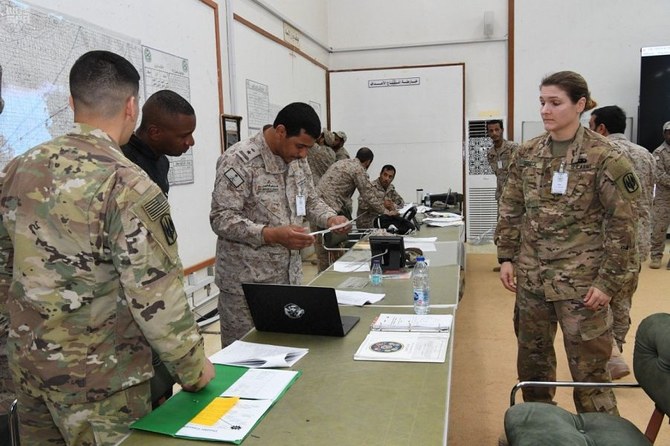
- ARAB NEWS
- 13 Jul 2025

King Salman’s approval for Saudi Arabia to host US forces should be seen as a significant indicator. The decision to allow foreign troops to operate in any country is clearly a sensitive one, so a personal sign-off from the highest authority in the Kingdom is a serious endorsement of this effort to boost regional security and stability.
The Pentagon said it would deploy troops and resources to Saudi Arabia to “provide an additional deterrent” in the face of “emergent, credible threats.” Of course, no one is expecting a deployment of Desert Storm proportions; reports suggest only 500-1,000 soldiers.
Nevertheless, even a symbolic US presence indicates yet another major shift in American foreign policy, which was completely misguided during the Obama era. Particularly at a time of heightened tension in the Gulf, this will be read in the Kingdom and in most parts of the region as yet another sign that the Trump administration better understands its own interests, but at the same time will not leave its allies out in the cold.
We — and by “we” I mean both us as US allies, and Americans themselves — are still paying the price of the so-called “Obama Doctrine,” when Washington played a dangerous game of trying to appease the Iranian beast. It was unwise to think that by using the nuclear deal “carrot,” they could lure the rogue Iranian regime back into civilization, to focus on building its own economy rather than terror networks.
Predictably, Iran used the financial windfall to spend more on regional destabilization; and Iran-backed Houthi militias attacked the US Navy three times at the end of 2016, giving the administration something of a reality check.
It is important to remember all this, because the Trump administration’s decision will almost certainly be criticized in the US liberal media (the same media that gave a platform to a spokesman for the Houthis, an armed ideological militia with the official slogan of “Death to America”).
On the subject of Yemen, it is also important to remember that the Saudi-led coalition is there at the request of the UN-recognized government; and that, unlike the Houthis, who deliberately and unapologetically target civilian airports and population centers, the coalition reports and apologizes for its mistakes. Furthermore, while Riyadh has supported every international effort to find a diplomatic solution, the Houthis continue to break cease-fires.
“As for Iran, the world is beginning to understand that the only language Tehran understands is that of force; the Japanese learned that lesson when Prime Minister Shinzo Abe visited Tehran in an attempt at mediation, and the regime orchestrated an attack on a Japanese tanker while he was there.”
Even Trump probably now regrets calling off a limited strike last month in hopes that Iran would come to the table; the mullahs don’t care if their economy crumbles and their people suffer. Their agenda is ideological, not necessarily logical.
Early in this crisis, the published opinion of Arab News’s editorial board was that while nobody wants or benefits from a war, a limited surgical strike was required to deter Iran. Unfortunately that ship has now sailed — unlike the tankers in the Gulf illegally seized by Iran, in the evident belief that it will pay no penalty.
So where do we go from here? Decision makers have three options that I can see: Engage in an immediate large-scale war at sea, protect oil tankers by having them sail under Russian or Chinese flags, or buy some time until an international coalition can be formed.
The third option seems the most likely.